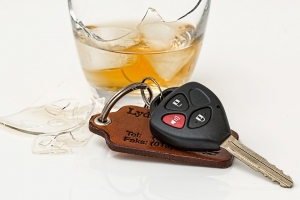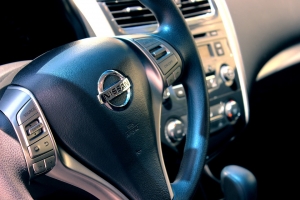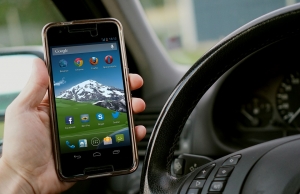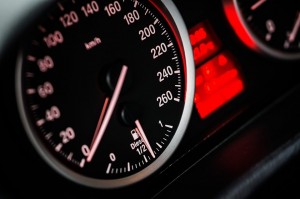Motoring Offences Information from St Helens Solicitor Dave Achilles
You can call us on 0800 195 5218 (Our Out Of Hours Emergency Contact Number 01744 454 477 is available 24 hours a day).
The police can use a variety of over 40 types of speed measuring devices to measure the speed of the motorist for the purpose of prosecution. Some of the most popular include:
- Speed cameras (GATSOMETERS)
- Peek cameras. A smaller version of the GATSOMETERS.
- Hand held laser and radar guns.
- The VASCAR (Visual Average Speed Computer And Recorder) device. Used by police officers to calculate the average speed of a vehicle over a set distance.
- The SPECS system. The use of a series of cameras over a set route which utilise automatic number plate recognition to calculate a vehicle’s average speed.
- Truvelo. An increasingly common form of speed camera device which relies upon road sensors to detect a car’s speed.
All of the machines used in modern day speed detection must be properly calibrated and used only by officers specifically trained in their operation. There are also strict rules governing when, where and how the machines should be used.
If the stringent operating requirements have not been met the Prosecution may be unable to prove a speeding offence.
Vast numbers of speeding convictions are now being brought and the majority of offences are dealt with under the fixed penalty scheme. This means that motorists increasingly accept a speeding conviction without going to Court and without ever seeing the evidence against them.
Excess alcohol / Driving while unfit

Any person convicted of driving with excess alcohol or driving whilst unfit through drink or drugs faces automatic disqualification and, in serious cases, may even risk imprisonment.
For these reasons, specialist advice at the earliest opportunity is essential.
If you have been charged with driving with excess alcohol, the Prosecution will have to prove that you were driving with excess alcohol in your breath, urine or blood. The present drink drive limits are as follows:
- 35 micrograms of alcohol in 100 ml of breath
- 80mg of alcohol in 100 ml of blood
- 107mg of alcohol in 100 ml of urine
When a police officer has reasonable grounds to suspect that a person is driving with excess alcohol he can require that person to perform a roadside breath test. If this provides a positive reading the driver will be arrested and taken to a police station where a further “evidential test” is required.
A refusal to provide a specimen without reasonable grounds is a separate offence.
There are a number of devices presently used by the police to provide alcohol reading. The most common machines used are the Lion Intoxilyzer 6000 UK and the Intoximter EC/IR . There are complex and technical rules governing the correct operation of every machine and any police officer using the machine must have the appropriate training. If the correct procedure is not adhered to, it may be impossible for the prosecution to rely upon the reading in court and you would be found not guilty.
Our team of lawyers, who are amongst the country’s leading experts in this field, will consider the evidence in your case and take your full statement before providing you with our views of the merits of defending a prosecution or pleading guilty. We will do this for a relatively low fixed fee so that you do not have to commit to spending significant fees in order to see if there is any way of defending the prosecution.
Dangerous Driving

Dangerous driving and causing death by dangerous driving are serious driving offences carrying a substantial risk of imprisonment and automatic disqualification. For those reasons, Keith Park Solicitors advise that expert assistance at the earliest opportunity is essential.
‘Dangerous driving’ means driving that falls far below the standard of a competent and careful driver and driving that would be obviously dangerous to a competent and careful driver.
Proof of dangerous driving often rests upon the evidence of eye witnesses and therefore, skilful cross examination and preparation can make the difference between being found innocent or guilty.
Careless Driving

Careless driving or ‘driving without due care and attention’ applies to any driving which falls below the standard of a reasonable and prudent driver.
With dangerous driving, it will depend entirely on the particular circumstances of the case.
Insurance

Any person driving a motor vehicle is required to have at least third party insurance in place to drive that particular vehicle.
However, insurance cover is not always straightforward and many people prosecuted for this offence genuinely believed that they were covered by a certificate of insurance when they drove.
A phenomenon that has increased in frequency over the last 5 years is people facing prosecution from causing or permitting someone else to drive their car without insurance. If convicted for this offence, you face the same penalty as if you had driven without insurance yourself.
If you supply details of a driver other than yourself in response to a Notice of Intended Prosecution (usually in speed camera or traffic light cases) you may find that the police may come back to you asking for proof of the driver’s insurance. This is quite common in cases where the driver you have named lives abroad.
Keith Park Solicitors have expertise in insurance matters and can carefully scrutinise insurance documents to determine whether you are insured. In some circumstances, we can challenge a motor insurer’s claim that you were not insured as many conditions of insurance are unlawful.
Driving without insurance is a serious offence and often carries a large fine and disqualification as the penalty. However, when a conviction is unavoidable, Keith Park Solicitors can offer representation with a view to ensuring that you keep your licence.
Points Disqualification

“Totting Up” – Exceptional Hardship
More than a million motorists are now only one conviction away from losing their driving licences, according to a survey carried out by Direct Line Insurance. There are 5.4 million drivers with penalty points on their licences and 85 per cent of them incurred the points for speeding offences.
Under Section 35 of The Road Traffic Offenders Act 1988 a driver who amasses 12 points within a 3 year period faces disqualification for a minimum of 6 months under the “Totting Up” provisions.
Points are counted from date of commission of the offence rather than date of conviction so a delay in the court process will not make any difference to your being caught by the “Totting Up” rules.
If you face a ban under this provision, perhaps the only benefit of a ban under s.35 is that it will wipe your licence clean of all points (This does not apply to a ban for an offence on its own.) The disadvantage is obvious. Not many people can happily contemplate the prospect of losing their licence for a few weeks, let alone 6 months. However, it is possible to persuade Magistrates to find Exceptional Hardship and allow you to continue to drive even with 12 points on your licence. Keith Park Solicitors have dealt with countless cases involving successful exceptional hardship arguments.
Driving Whilst Disqualified

Driving whilst disqualified is not just another motoring offence. Most motoring offences do not attract a custodial sentence but not driving whilst disqualified. For a first time offence you can expect at least a community-based penalty and for any subsequent offence custody would be considered. If you face a charge of driving whilst disqualified or know somebody who requires assistance you should contact us.
Get in touch for legal advice from an expert solicitor in St Helens:
We are based in St Helens Town Centre, offer FREE first advice so get in touch to find out how we could help you.


